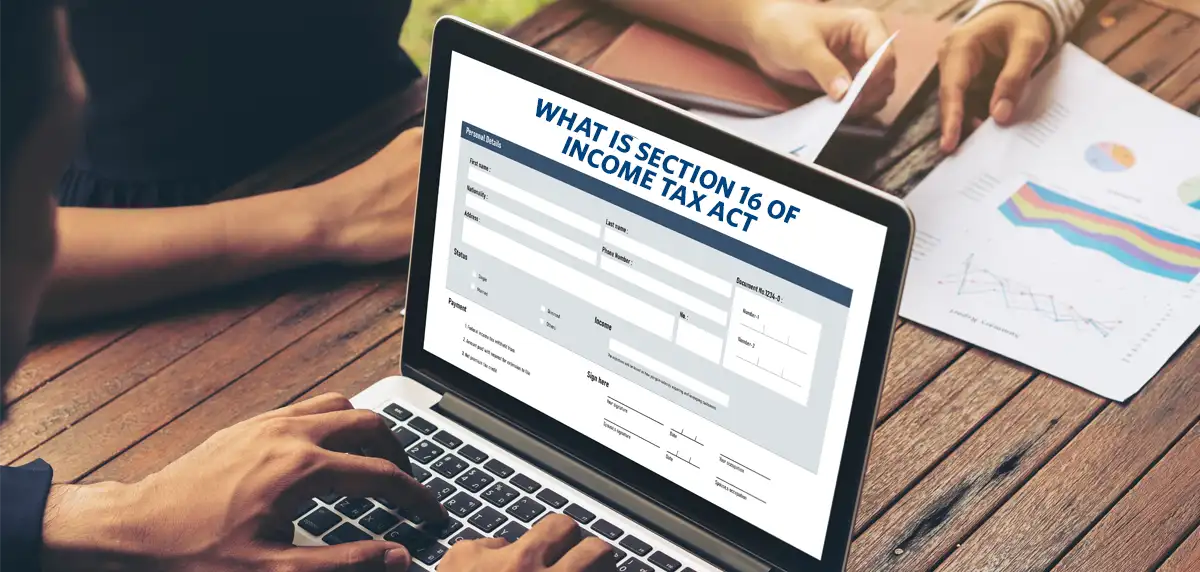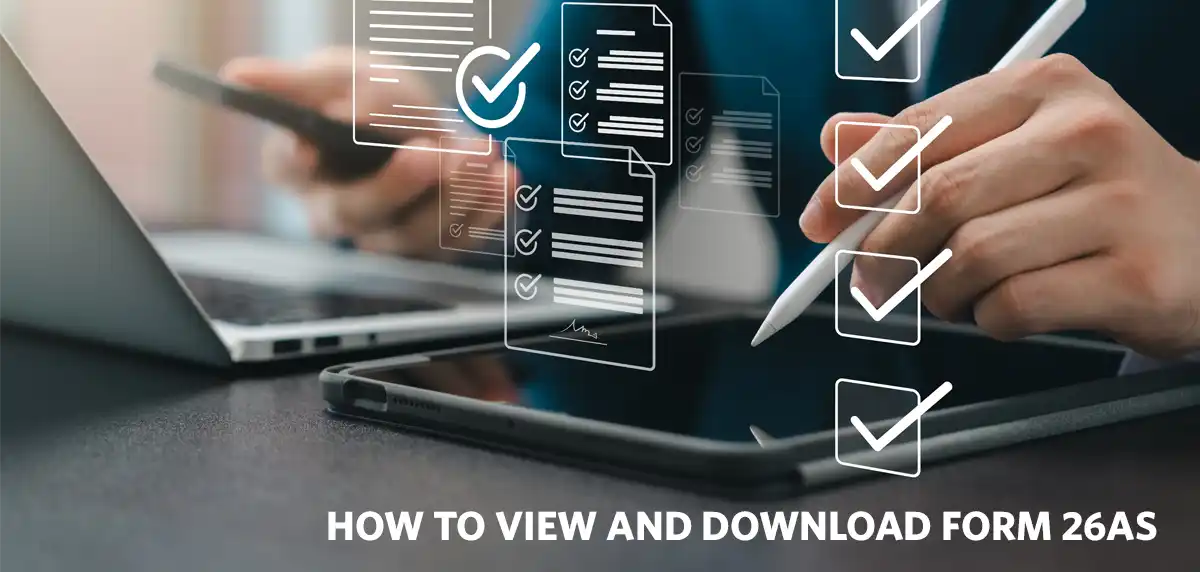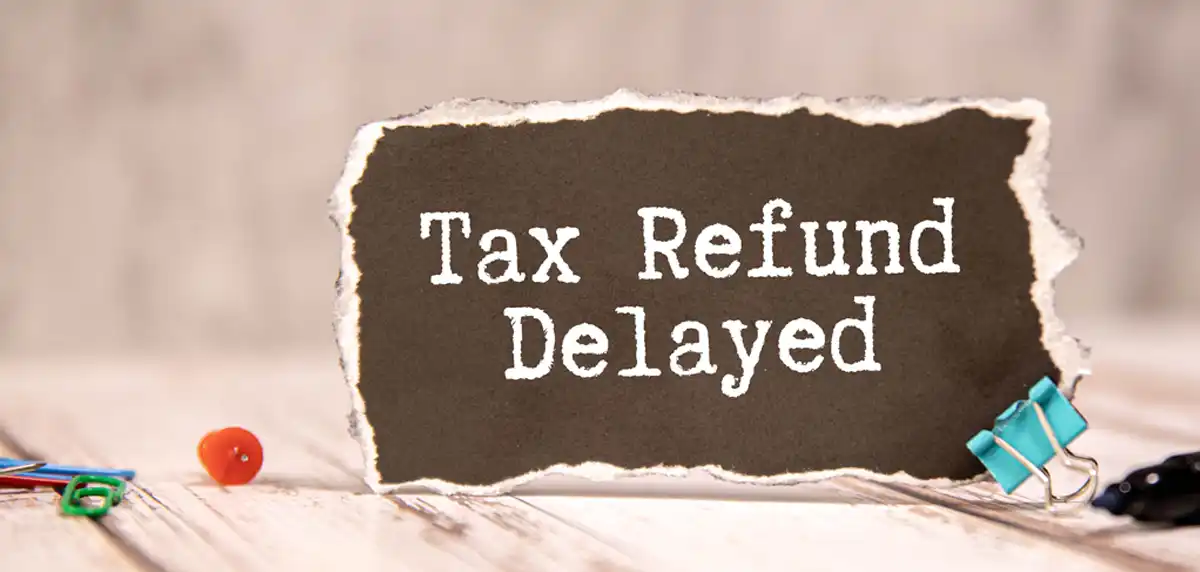The Income Tax Act of 1961 offers various provisions to help individuals lower their taxable income. Out of these, Section 16 is a significant one. It is directed towards offering tax-saving benefits on salary income. Understanding these provisions is key to maximising the allowable deductions and benefits as a taxpayer. Let's delve into the provisions of Section 16 of the Income Tax Act and understand how it may prove beneficial for you.
What is Income Tax Section 16?
Section 16 of the Income Tax Act outlines three distinct types of tax deductions applicable to your salary. These deductions aim to adjust your taxable income, thereby reducing your tax liability.
The deductions include:
- Standard deduction
- Deduction for entertainment allowance provided by your employer
- Deduction for professional tax on your salary income
Let's explore these provisions of Section 16 in more detail.
Standard Deduction Under Section 16(ia)
Under Section 16(ia), the standard deduction is a fixed amount subtracted from your salary income. Introduced by the government in the Union Budget of 2018, it replaced the previous transport and medical allowance deductions. Initially set at ₹40,000, this amount could be reduced from your salary to determine your taxable income.
In the Interim Budget of 2019, the standard deduction limit was increased to ₹50,000 to provide greater tax relief. Consequently, for FY 2021-22 and subsequent years, the standard deduction remains capped at ₹50,000 unless further changes are announced. It's important to note that the standard deduction is not applicable if you opt for the new tax regime slab rates.
The standard deduction under Section 16(ia) also applies to retired individuals receiving a pension income. Since pension income is taxable under the "Income from Salary" head, a standard deduction of ₹50,000 on such pension income is permissible each financial year.
However, if your salary income is less than ₹50,000, the allowable standard deduction will be equivalent to your salary income. Therefore, the standard deduction is the lower of ₹50,000 or your actual salary income. It is crucial to understand that this standard deduction is independent of and unrelated to any other tax saving options within the Income Tax Act, 1961.
Here's an illustration of how the standard deduction is calculated.
- Other taxable allowances: ₹50,000
- Gross salary: ₹6,50,000
- Standard deduction: ₹50,000
- Total income: ₹6,00,000 (Gross salary - Standard deduction)
- Other deductions: ₹1,50,000
- Taxable Income: ₹4,50,000 (Total income - Other deductions)
- You can also use a salary calculator to learn more about your taxable income.
Deduction on Entertainment Allowance Under Section 16(ii)
If your employer provides an entertainment allowance, it's typically added to your gross salary and included in your total income. However, Section 16(ii) allows you to claim a tax deduction on this entertainment allowance.
The eligibility for this deduction depends on your employment status.
For government employees (Central or State government), the deduction for entertainment allowance under Section 16(ii) is the lowest of the following:
- ₹5,000
- 20% of your basic salary
- The entertainment allowance received
This deduction is permissible when your salary does not include any other allowances, benefits, or perquisites from your employer. Furthermore, the deduction is based on the allowance amount you receive, not on the amount you spend for entertainment purposes.
If you are not a government employee, no deduction for entertainment allowance applies to your salary income. In such cases, any entertainment allowance provided by your employer will be added to your taxable income.
Here's an illustration for calculating the deduction for entertainment allowance.
- Salary (excluding allowances, benefits, and perquisites): ₹4,00,000
- Entertainment allowance per month: ₹3,000
- Entertainment allowance for the year: ₹36,000 (₹3,000 x 12)
Amount of deduction will be the least of the following:
- ₹5,000
- 20% of salary: ₹80,000 (20% of ₹4,00,000)
- Actual amount received: ₹36,000
The lowest of these is ₹5,000. Therefore, the allowable deduction on the entertainment allowance is ₹5,000.
Deduction on Professional Tax Under Section 16(iii)
Professional tax is levied on your salary income and contributes to your tax liability. Nevertheless, Section 16(iii) of the Income Tax Act, 1961, provides a tax deduction for it based on the following aspects:
- The deduction applies to your salary income for the financial year in which you have paid the professional tax.
- If your employer pays the professional tax on your behalf, it will be considered part of your perquisites when calculating your gross salary. Subsequently, you can claim the professional tax paid by your employer as a deduction under Section 16(iii).
- There is no specified limit for the deduction of professional tax. Consequently, the entire amount of professional tax you pay qualifies for the deduction, regardless of the sum.
- However, any penalty or interest amounts you are liable to pay on professional tax will not be allowed for deduction.
You can also use an income tax calculator to make you tax planning easier.
Why are these Deductions Important for Taxpayers?
Understanding and strategically utilising the deductions available under Section 16 is crucial for taxpayers for several compelling reasons.
Increased Take-Home Pay
The most direct benefit is the reduction in your taxable income. By lowering the amount of income subject to tax, you effectively decrease your overall tax liability.
This translates to more money in your bank account, thus enhancing your disposable income for savings, investments, or discretionary spending.
Promotion of Tax Compliance and Awareness
When taxpayers are informed about the legitimate deductions they can claim, it encourages accurate income declaration and claiming of eligible benefits.
This fosters greater transparency within the tax system and helps individuals avoid errors or omissions that could lead to future penalties.
Governmental Relief and Incentives
These deductions reflect the government's intention to provide financial relief and incentives to salaried individuals.
The standard deduction, for example, acknowledges common work-related expenses incurred by employees, offering a simplified, blanket deduction without extensive record-keeping.
The professional tax deduction reduces part of the state‑level income levy.
The entertainment allowance deduction helps government employees cover specific work‑related expenses
Financial Optimisation and Planning
Section 16 empowers taxpayers to proactively manage their finances. It allows for strategic tax planning to ensure that you are not paying more tax than legally required.
By optimising your tax outflow, you can reallocate those funds towards achieving other financial goals, such as building an emergency fund, making significant purchases, or creating an investment plan for retirement. This proactive approach contributes significantly to long-term financial health and growth.
As a responsible taxpayer, understanding the tax provisions related to your salary income is essential to maximise your benefits. Section 16 of the Income Tax Act, 1961, offers a standard deduction, along with deductions for entertainment allowance and professional tax. However, certain nuances require special attention when applying these specific tax provisions. Make sure you understand them thoroughly or seek professional advice to accurately determine your tax benefits.
























